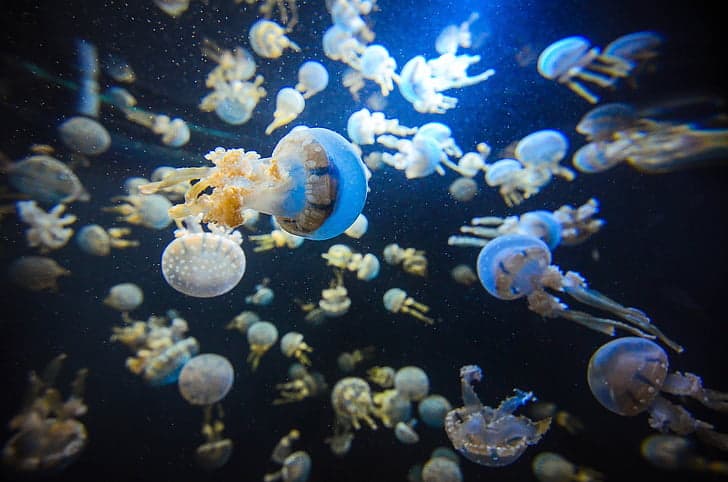When you think about sharks, images of fearsome predators gliding through ocean waters in search of their next meal may come to mind. Sharks are fascinating creatures with complex diets that vary depending on the species, region, and availability of prey. One question that often piques curiosity is: Do sharks eat jellyfish?
At first glance, it may seem like an unusual food choice, but when you delve into the intricacies of marine ecology, the answer becomes much more nuanced.
Before diving into the specifics of whether sharks consume jellyfish, it’s essential to have a broad understanding of their dietary habits. Sharks are carnivorous creatures that primarily feed on fish, crustaceans, mollusks, and marine mammals like seals. The type of prey varies from species to species and is influenced by the shark’s size, habitat, and hunting abilities.
Sharks That Defy Conventional Dietary Habits
While the majority of shark species favor a diet consisting of meaty organisms, some are exceptions. For example, the whale shark, the largest fish in the sea, primarily feeds on plankton. Similarly, the basking shark consumes zooplankton by filtering water through its massive jaws.
Do Sharks Eat Jellyfish?
The straightforward answer to the question “Do sharks eat jellyfish?” is not often. Jellyfish are composed mainly of water and provide very little nutritional value. Sharks, being apex predators, usually aim for prey that is rich in fats and proteins to sustain their energy levels. Consuming jellyfish would not provide them with the calories and nutrients they need for survival.
However, there are instances where sharks have been observed eating jellyfish. These occurrences are typically accidental and can even be harmful to the shark. Some species of jellyfish possess stinging cells, which can cause discomfort or even injury to the predator.
Why Sharks May Mistakenly Eat Jellyfish
Jellyfish often float in the water alongside other prey, such as schools of fish. Sharks, while on the hunt, may inadvertently consume a jellyfish. This accidental ingestion usually happens when sharks are hunting in a frenzied state or in areas where visibility is low.
The Consequences of Ingesting Jellyfish
Ingesting jellyfish can have adverse effects on sharks. Jellyfish tentacles contain specialized cells called nematocysts that release toxins when triggered. While the shark’s thick skin usually provides a certain level of protection, the digestive system may still be affected if a jellyfish is consumed. There have been instances of sharks regurgitating jellyfish after ingesting them, suggesting that they are not a preferred food item.
check out another strange and interesting sea life topic : Is sea foam whale sperm?

FAQ: Do Sharks Eat Jellyfish?
Q: Do all shark species eat jellyfish?
A: No, jellyfish are not a common part of any shark species’ diet. Most sharks prefer prey that is rich in fats and proteins.
Q: Why might a shark mistakenly eat a jellyfish?
A: Sharks may accidentally consume jellyfish while hunting for other prey, especially in areas where visibility is low or when in a frenzied state.
Q: Are jellyfish harmful to sharks?
A: Jellyfish can potentially harm sharks. The toxins in jellyfish tentacles can affect the shark’s digestive system and may lead to regurgitation.
Q: Do sharks ever eat jellyfish on purpose?
A: There is little evidence to suggest that sharks intentionally eat jellyfish. Most documented cases point to accidental consumption.
Q: What is the nutritional value of a jellyfish to a shark?
A: Jellyfish are mostly made of water and offer very little nutritional value. They are not an efficient source of calories or nutrients for sharks.
To conclude, while sharks are highly versatile predators, they generally do not consume jellyfish as part of their diet. Jellyfish lack the nutritional value that sharks require for their high-energy lifestyle. Although there are instances where sharks have ingested jellyfish, these are rare and often accidental. With the ocean’s intricate web of life, sharks and jellyfish coexist in a balanced ecosystem, each playing a unique role in the marine world.

